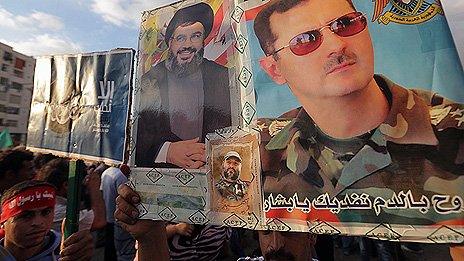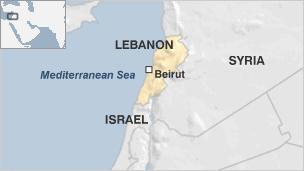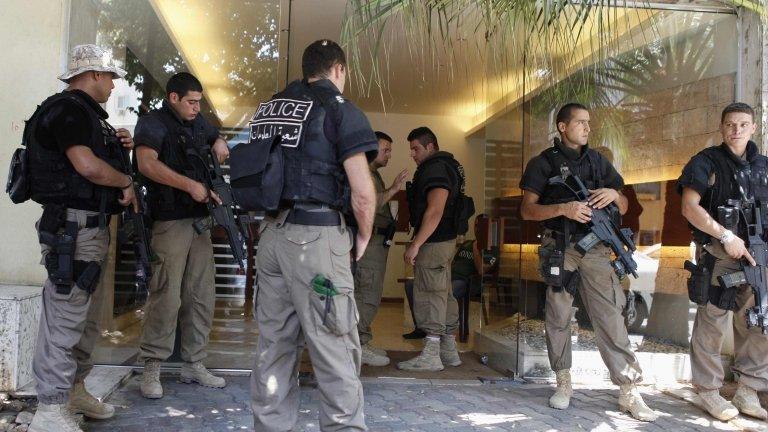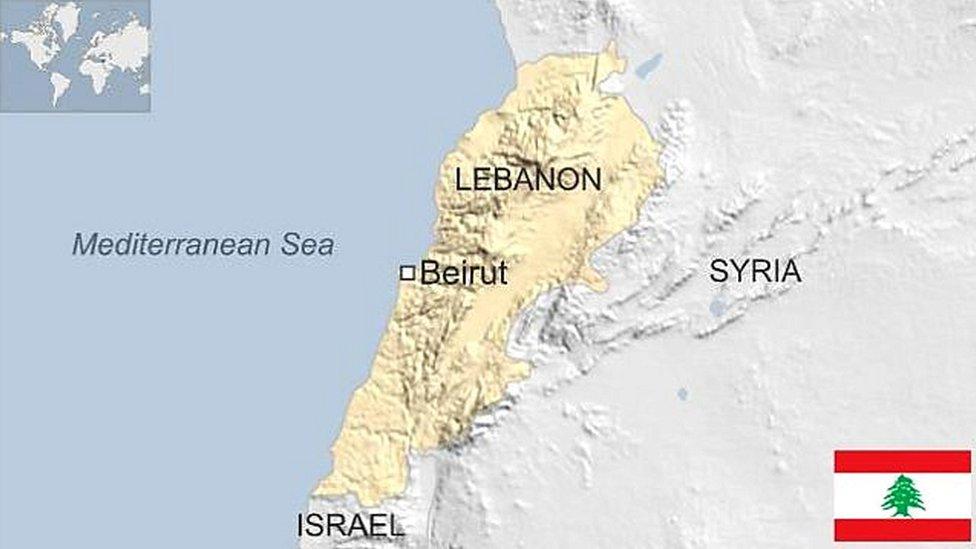Will Lebanon be sucked into the Syrian crisis?
- Published

After clashes in Lebanon between factions supporting the Syrian president and those opposed to him, some residents of the capital Beirut are thinking about moving to a safer place.
While everyone outside Lebanon has been talking about Syria's troubles and what effect they will have on its neighbours, those inside Lebanon have been gripped by an issue that is already crippling daily life for many.
The constant strikes at the state-owned electricity provider have meant far longer power cuts than normal. Some homes outside the capital are getting state electricity for only a couple of hours a day or less.
Cut after cut has left the Lebanese slumped in the dark without air conditioning or stuck in a lift between floors, wondering how long it will be before their yoghurt sours.
Striking is not a common protest method here and the employees of Electricite du Liban, though poorly paid, are far from the worst off in the country.
"It's political, like everything else," my friends here tell me. "Someone has been stirring them up for their own agenda."
It sounds likely. After all, Lebanon has been the playground for so much proxy war, why would domestic resource disputes be any different?
Shopping centres, with their huge generators, are about the only place you can bank on air conditioning in the relentless midday heat.
In a department store in Beirut, as I hesitate over a pair of vibrant pink-orange heels, I watch out of the corner of my eye the female members of a large Syrian family stocking up on glittering sandals, wedges and stilettos.
I wonder if they will be taking them back home. They probably wish they knew too.
For several months now Beirut's streets have seen an influx of cars with Homs, Aleppo or Damascus on the number plates.
In the upmarket city centre, plenty of middle-class Syrians who have fled destruction are looking for some retail therapy.
In fact they are, to some degree, compensating for this year's dearth in Lebanon's traditional retail tourists - those from the Gulf, who are steering clear because of the very same conflict.

Meanwhile, poorer Syrian families have settled in border regions, with relatives or in temporary housing.
Though the electricity woes in Lebanon have not improved, Syria is beginning to encroach on local conversation.
Will Lebanon be sucked into the crisis and, if so, when?
For those able to leave the country, timing is vital. It takes very little to block the road to Lebanon's only commercial airport.
What is more, unlike during previous conflicts, the land route out via Syria is no longer an option.
Fleeing south never has been, since Lebanon is technically at war with its only other neighbour, Israel.
'Trouble there, trouble here'
Of course living here has always been a roller coaster of political turmoil.
In fact six months into the Syrian conflict, the doorman of my building, Mohammed, sent his wife and kids back home to Syria to attend school there.
"There's trouble there, there's trouble here," he pointed out. He said school for the two boys was just too expensive in Lebanon, and his home town was not affected so far.
Mohammed, whose oldest boy Bashar is named after the Syrian president, is circumspect about the situation in his home country, evasive even. But I wonder if any corner of Syria can remain unaffected for much longer.
The attentive employee who wants me to buy the flashy shoes is well into his sales pitch. I try on the heels. They are too bright to be a daily basic.
If I have to pack up my life and leave Lebanon next month, next week, I know they will not make it into my suitcase. Yeah, maybe I should buy the tan version instead, just in case there is war. Or maybe I have been here too long already.
But seriously, when is it time to leave? When the street battles spread to the capital? When the men in your home village take up arms?
A lot depends on whether you have a place to go or can afford to make one. My war-tolerance threshold is a good deal lower than Mohammed's and lower still since I became a mother.
But then again I have a place to go and the right passport to get out, if I am quick enough.
In the store, we are abruptly cast into darkness and everyone grinds to a halt.
Women pause - one shoe on, the other in hand. Mothers reach for their children. The sales chatter ceases. Until the generator kicks in, the lights flicker back on, the music starts up again and the show goes on.
Like a toy that has been wound up again, the salesman is off.
He pulls out his closing argument, his trump card. "This colour," he tells me in all sincerity, "is going to be in fashion until 2014!"
At least some things in life are sure.
How to listen to From Our Own Correspondent:
BBC Radio 4: A 30-minute programme on Saturdays, 11:30 BST.
Listen online or download the podcast
BBC World Service:
Hear daily 10-minute editions Monday to Friday, repeated through the day, also available to listen online.
Read more or explore the archive, external at the programme website, external.
- Published9 August 2012

- Published10 January
